browsing
Latest
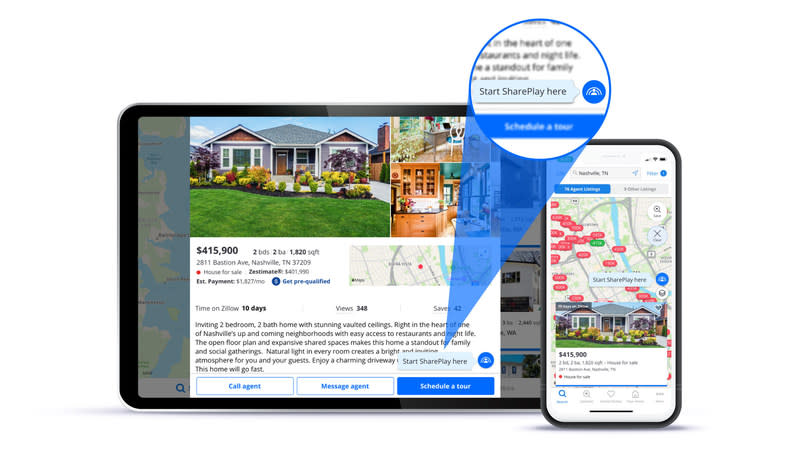
Zillow adds FaceTime SharePlay to browse homes with friends
Zillow has updated its iOS 15 iPhone and iPad apps with SharePlay support, letting you browse homes with other people on Facetime.

Firefox is about to get much, much faster
Firefox got speedy last year when its Quantum browser rolled out -- now it's set to get even faster. The latest release rolling out today prioritizes its performance management "to-do" list with a set of features that'll load pages up to 40-80 percent quicker. The browser will now suspend idle tabs, delay lesser-used scripts and skip unnecessary work during start-ups.
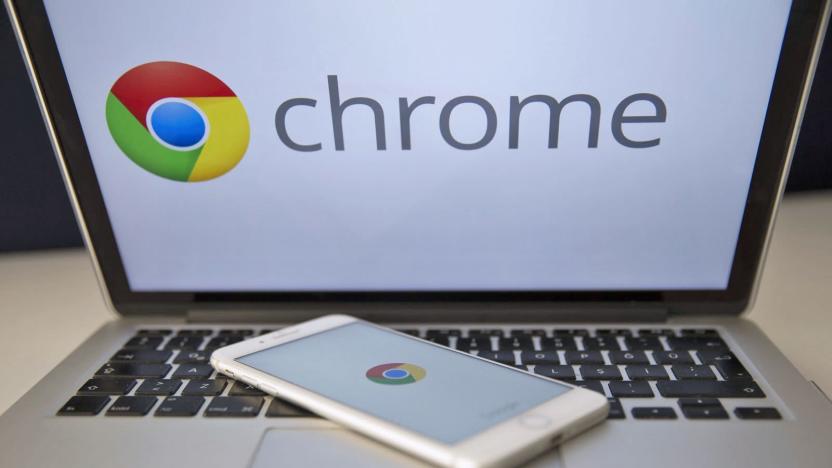
Chrome update stops websites from tracking you in Incognito Mode
Google has launched Chrome 74 for Windows, Mac, Linux, Android and iOS, bringing with it a bunch of handy new features, although some -- such as Incognito detection blocking -- require a bit of tinkering to access.
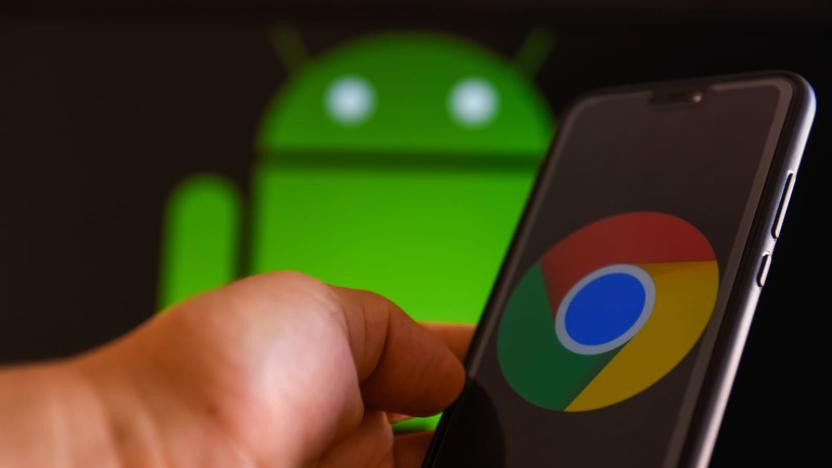
Chrome's 'Lite Pages' now work with secure sites
Loading websites over a slow connection can be frustrating and expensive. That's why Google offers Data Saver, a feature that lets Chrome reduce data use by up to 90 percent and load pages two times faster. Previously, this Lite feature was only available for HTTP pages. Now, on Android, Chrome is extending the function to HTTPS pages as well, meaning you'll be able to browse faster and securely, even if your network connection sucks.
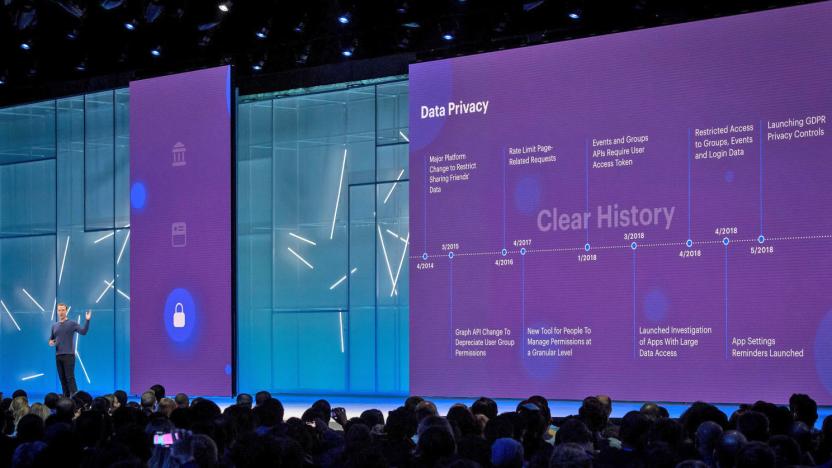
Facebook's 'Clear History' tool won't arrive until spring 2019
When Facebook introduced its Clear History feature in May, it expected to offer the privacy-oriented controls in the space of a few months. Well... it's going to take decidedly longer than that. The company's David Baser told Recode in an interview that Clear History will be available for testing "by spring of 2019." It's "taking longer" to implement the de-identification technology than Facebook first thought, Baser said. He pinned it on major technical hurdles that cropped up in development.
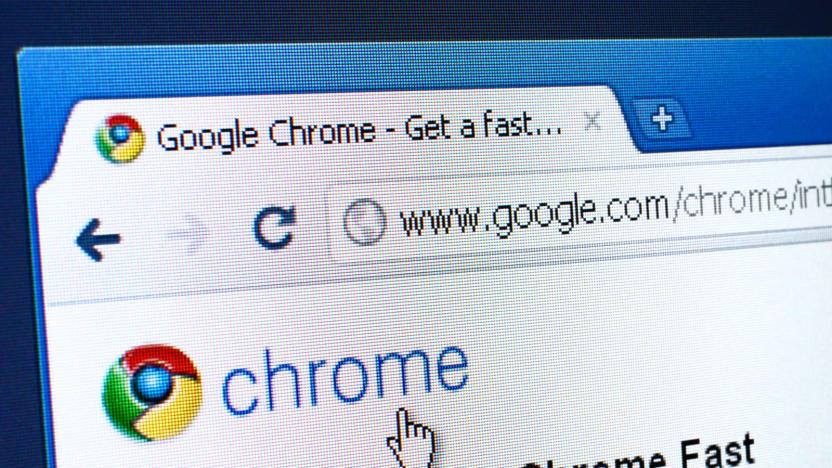
Google wants to change the way we interact with URLs
Google's done a lot with Chrome -- and by extension, our relationship with the internet -- in its relatively short life. Autofill, ad management, web encryption... These are all things that were at one time pretty ground-breaking, but which we now simply take for granted. Now, following the browser's 10th birthday and coinciding with its major redesign, Google has announced it's thinking about Chrome's Next Big Thing: killing the URL.

YouTube is working on an incognito mode for its Android app
YouTube is in the process of testing an Incognito mode that's destined for its Android app. It wouldn't be the first service to acknowledge that sometimes, you just want to keep your browsing history under lock and key. Indeed, Google Chrome, Chromecast, SwiftKey and the Gboard keyboard app are already armed with the protection of an Incognito Mode, so it should come as no surprise that YouTube may soon get its own stealth feature.

MIT's Veil service will make private browsing more private
After reports and studies revealed that browsers' private modes aren't that secure, MIT graduate student Frank Wang decided to take things into his own hands. He and his team from MIT CSAIL and Harvard have created a tool called Veil, which you could use on a public computer -- or on a private one on top of using incognito mode and Tor if you have big secrets to keep or if you've just become paranoid after years of hearing about hacks and cyberattacks.
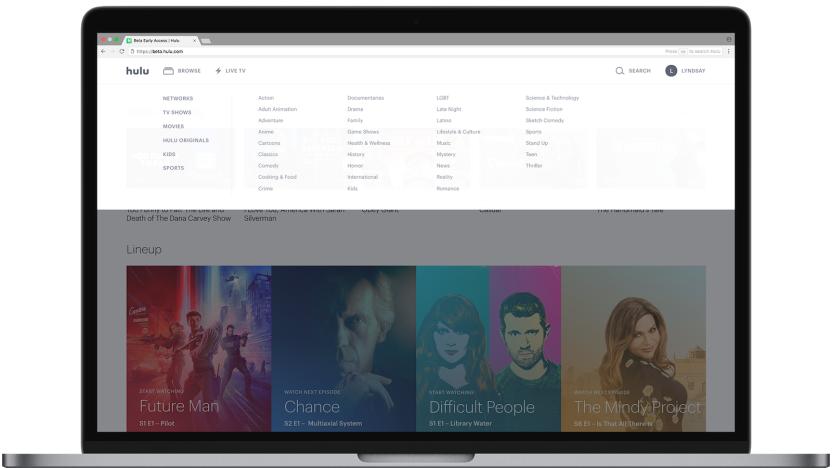
Hulu's Live TV service is now much easier to browse on the web
Hulu has been working on some new features for its Live TV service. The changes are specifically geared towards improving navigation and browsing in the web version of Hulu Live TV. First, the new version has a Live TV button right at the top of the home page and there are also more curated collections of shows and movies. Web users will now see collections like Keep Watching, Lineup and Fall TV. Hulu has also changed how to access title details by making them easier to get to and having them show up as an overlay so you can easily return to browsing. And there's also now a dedicated Browse menu.

Algorithm shows the data you give away when clicking suggested links
If you're roaming the internet, you might run across recommendation engines. Some offer products or services you'd actually want to use, but does interacting with them harm your privacy even more? Researchers developed an algorithm to reveal how much info you're handing over when you click around, essentially picking out which parts of a recommendation engine are and aren't safe for privacy-minded users.
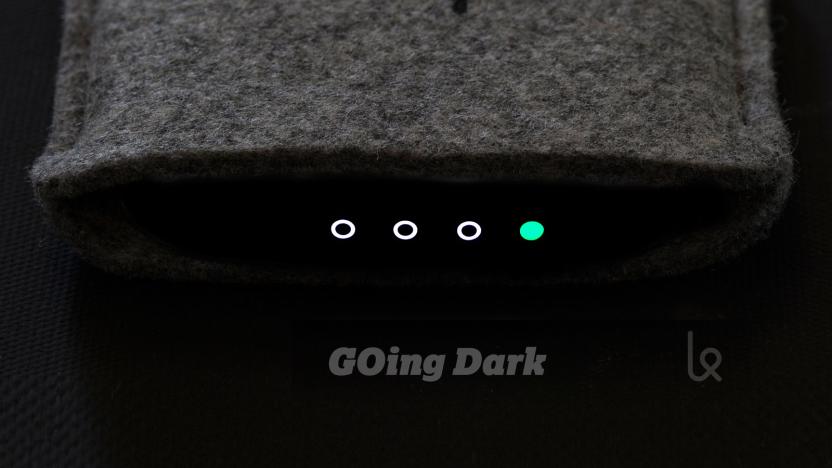
Karma's new hotspot gives users a cloak of invisibility
Personal hotspot hardware provider Karma has announced a new security-focused product, Karma Black. A specialized version of the company's KarmaGO hotspot device, Karma Black will provide anonymous browsing (Tor), an integrated Virtual Private Network (VPN), blacklisting and ad-blocking. KarmaGO allows users to establish a WiFi connection through 4G via a small portable device, either on a pay-as-you-go basis or through a monthly data plan -- it's particularly popular with business travellers. Karma Black will operate in the same way, but will act as an invisibility cloak for users, encrypting web activity and hiding physical location. It'll also provide beefier protection against intrusive advertising and viruses.

Google shows the web is a lot more secure than it was a year ago
As we spend more time online, the need for secure browsing and communications has become more and more important. Messaging apps now incorporate encryption as standard and many of your favorite websites (including this one) are moving to HTTPS to protect their visitors. For the longest time, Google has helped champion that movement by rolling out secure apps and services, but its latest move is all about highlighting the good work of others. The web is a lot more secure than it was just a year and a half ago, and thanks to its new Transparency Report metric, Google has the stats to prove it.

Google's redefined privacy policy lets ads follow you everywhere
In 2007, Google bought online advertising network Doubleclick with the assurance that they would prioritize user privacy as they developed new ad products. They've kept that promise, dividing their massive database of web browsing data from the personal info collected from Gmail and other parts of its product suite. Until last summer. That's when the search giant quietly asked account owners to opt-in to sharing more data, an oblique request for permission to bundle user browser activity with personally-identifying information to better cater ads. In essence, signing up lets Google's ads know who you are no matter where you go across different devices.

MIT has a way to speed up web browsing by 34 percent
Sure, Google has a way to reduce page load speeds, but that's limited to mobile for now. From the sounds of it, the venerable Massachusetts Institute of Technology has other plans that could make mobile and desktop web browsing about 34 percent faster. Instead of using compression, MIT's Computer Science and Artificial Intelligence Lab (CSAIL), along with Harvard, have developed a framework that changes how a browser downloads things like images and JavaScript.

Google keeps you safe from sneaky download buttons on the web
For years now, Google's been working hard to make the internet less dangerous. That's why the company has announced a new feature to strengthen its Safe Browsing initiative. The goal with this one, Google says, is to protect users from deceptive embedded content on the web, such as sketchy advertising banners with fake download buttons. From here on out, if a site's trying to be sneaky, you'll see the warning pictured above.

Chrome for Android slims down the internet when speeds are slow
If you've ever been stuck with slow mobile internet and just wanted to read an article, Google has some mighty good news. It's about to release a new feature to its Chrome for Android Data Saver mode that will only display text when it senses a slow network. Once a page loads, you can then show all images (above) or specific ones by tapping on them. Google says that the new trick will use up to 70 percent less mobile data on Android devices.

Plug-in turns your browsing history into a searchable database
Some apps make it easy to delete your browsing history for the sake of privacy and security. This one called Fetching, however, does the opposite: it saves a comprehensive copy of your history for years to come. What for? Well, searching random words on Google doesn't always return the results you want, and a browser's native history could be a useless jungle of websites. You can use this app to search only among websites you've browsed in the past and find that particularly interesting feature you've read or that great deal you've come across. Fetching, created by a developer named Peter Brown who works on it in his spare time alone, lives in the computer as a browser plug-in.
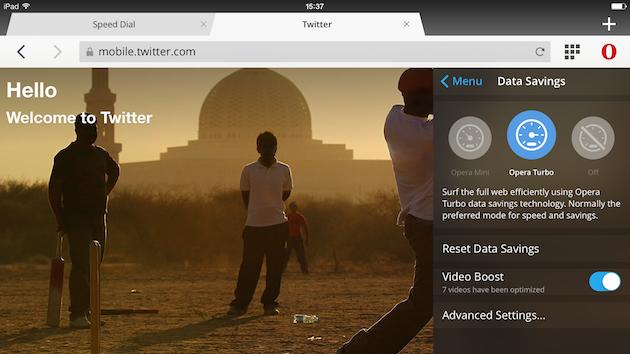
Opera Mini 9 promises smoother video-watching on iOS
Since the beginning, Opera's focus with its mobile browser has been to save users as much data as possible. Now, with the release of Opera Mini 9 for iOS, the idea is to take that mentality a step further, by better managing a thing people enjoy doing most on their devices: watching video. As such, Opera Mini 9 comes with a feature called Video Boost that optimizes videos to save on bandwidth, which includes the ability to reduce loading times for those with an iPhone and/or iPad. According to Opera, this is the first time video optimization for sites has been built within a browser, and it believes the implementation is so good that it could easily replace a video-focused app -- like YouTube or N3twork. But don't take Opera's word for it, you can check it out for yourself at the App Store link below.

Google's AdID, an anonymous identifier for advertising, could replace the aging cookie
You know the drill: accept the cookie, delete the cookie, empty the cookie bin, and so on. Mostly, it's an exercise used when attempting to get your mum's PC to run a wee bit faster, but if you think about it, the cookie is one of the most archaic pieces of the world wide web that's still in use today. Naturally, Google is swooping in in a bid to change the status quo, according to a new report from USA Today. Essentially, the search giant is building an "anonymous identifier for advertising, or AdID, that would replace third-party cookies as the way advertisers track people's internet browsing activity for marketing purposes." Perhaps astoundingly, it sounds as if the project could benefit both consumers (by shielding true identities) and advertisers at the same time. Of course, pundits are concerned about the global leader in online advertising controlling the technology that tracks movements on the web, but to us, it sounds as if end users will get far more power over who sees what when compared to today's cookies.

This is the Modem World: The day Google died
Each week Joshua Fruhlinger contributes This is the Modem World, a column dedicated to exploring the culture of consumer technology. One day, Google will not be the technology giant that it is today. Consider the following: In 1968, the Pontiac GTO was Motor Trend's Car of the Year. Today, Pontiac is a historical footnote of General Motors. In 1981, IBM launched the PC, which became the de facto standard of personal computers, spawning hundreds of PC clones and dominating the computing market to this day. In 2005, the IBM PC business was acquired by Lenovo, and the IBM PC is no more.











